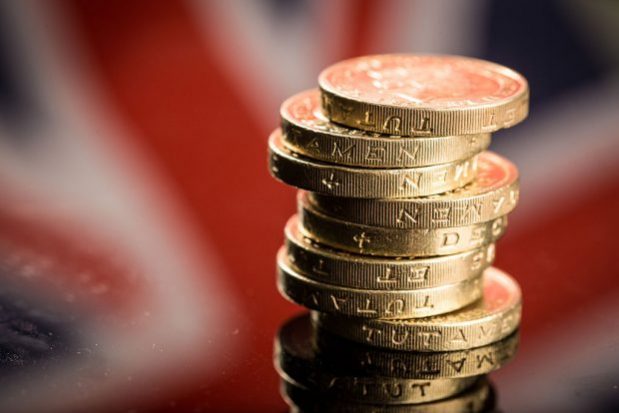Many travellers buying foreign currency at the UK’s airports are now receiving less than one euro to the pound.
The continued fall in sterling’s value means that the average rate available at 17 airport bureaux de change is now just 99 euro cents to the pound. The BBC reports that the worst rate is currently 88 euro cents at Moneycorp at Southampton airport and the best is €1.06 from the Change Group at Glasgow Prestwick. Since the UK’s Brexit vote in June, the pound has fallen sharply in value. The average US dollar rate at the airports is down to $1.08 to the pound. PensionsThe Pensions Regulator is asking for new powers to stop final salary pension schemes being dumped when companies are sold.
Lesley Titcomb would like firms with large pension deficits to be required to inform her if a sale is imminent and powers to intervene if necessary. At the moment, companies do not have to inform the regulator before a sale. The Government insists it has a robust and flexible system for regulating occupational pensions. In other pensions news, former Minister of State, Department of Work and Pensions Ros Altmann has described the way women approaching 60 were told they wouldn’t get their state pension for a further six years as ‘a massive failure in public policy’.Speaking on BBC One’s Rip Off Britain: Live, Baroness Altmann said the letters sent to those most affected by the change in when women’s pensions will be paid out came too late – and were unclear.
FuelMotorists face inflation busting rises in the cost of petrol and diesel as the oil price soars and the pound sinks, industry experts warned last night.
The Daily Mail reports that the cost of filling up a typical family car has already risen by nearly £6.50 in the last seven months after unleaded jumped from around £1 a litre to more than 113p.
But the Petrol Retailers Association said drivers should brace for prices at the pumps to rise by another 5p a litre by the end of the month – adding a further £2.75 to a tank of fuel.
Housing
Workers on average earnings in London are priced out of the housing market in all 30 areas. A new GMB report published today shows current average house prices in the area are between 9.7 and 24.1 times average earnings. In London as a whole, the average house price in July 2016 was £484,716 which is 14.6 times the average full time earnings of £33,203. House prices are rising at a much faster pace than earnings with the house price to earnings ratio now 7.8 on average across the UK. Average house prices in London increased by 12.3 per cent in the year to July 2016. FloodingHundreds of thousands of householders in flood risk areas have failed to install basic protection against rising waters, insurers say.
The Association of British Insurers said even buildings guarded by flood defences should have flood-proof doors in case embankments are over-topped. The comments add to a complex blame game over responsibility for floods. The insurers have been criticised by the Environment Agency for failing to protect inundated properties. Brexit Cabinet ministers are being warned that the Treasury could lose up to £66 billion a year in tax revenues under a ‘hard Brexit’, according to leaked government papers. The Times reports that GDP could fall by as much as 9.5 per cent if Britain leaves the single market and has to rely on World Trade Organisation rules for trading with the continent, compared with if it stayed within the EU, the forecasts show. Such a steep drop in revenue would force ministers to slash public spending or raise taxes. Children’s savings accounts It is unusual to see a mass of rate cuts on children’s savings accounts, but the latest research by Moneyfacts.co.uk reveals this is exactly what’s happening. More than 100 rate cuts have been made over the course of 2016 to child savings accounts, so much so that some deals are now paying as little as 0.1 per cent a year. Disappointingly, some of the fixed rate regular child savers have faced cuts of up to 2 per cent this year, while some JISAs have had cuts of up to 2.25 per cent. Furthermore, variable rate child savers have been reduced over the last few weeks due to the base rate cut, with some cut by as much as 0.55 per cent. Shopping Grocery sales rose at their fastest pace since 2013 in the three months to September as supermarket price wars and an Indian summer gave food retailers a boost. The latest British Retail Consortium-KPMG survey showed food sales rose 1.6 per cent between July and September compared with the same period last year – three times the average 12-month rate of 0.5 per cent. Paul Martin, head of retail at KPMG, said: ‘Late summer temperatures combined with shoppers continuing to benefit from the ongoing price war has meant food and drink sales have been in the black for a full quarter – undoubtedly welcome news for the sector.’





Comments